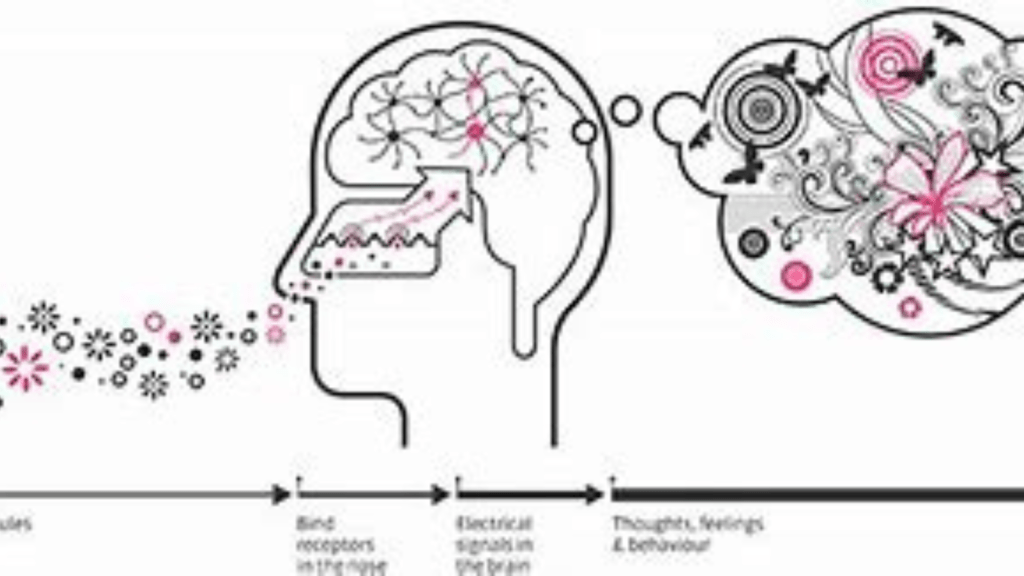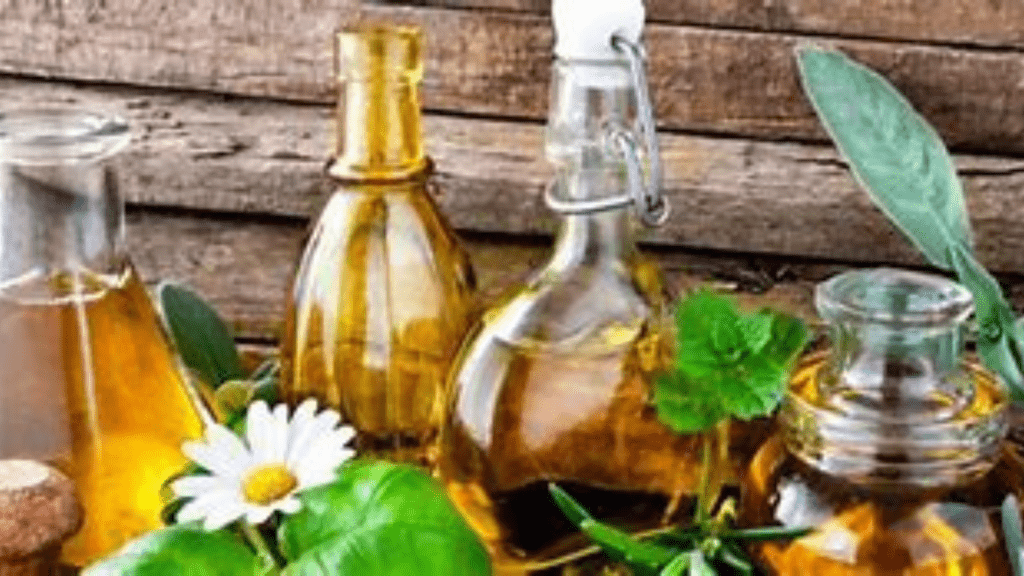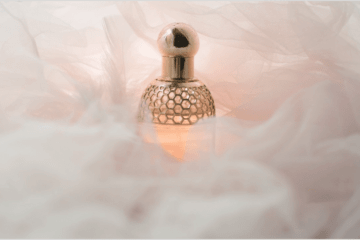Our sense of smell can take us back in time. It evokes strong emotions and unlocks memories that we cherish.
In this exploration, we will unravel the complex link between perfume and our emotions. We will shed light on the deep impact that scents can have on our well-being.
So, buckle up. We are about to start a fragrant journey. We will explore the complexities of the human sense of smell and its deep link to our emotions and memories.
The science behind fragrance notes

Fragrance notes’ science is fascinating. It explores how perfumes’ chemicals trigger emotional and memory responses.
Fragrance notes refer to the individual scents that make up a fragrance and are categorized into top, middle, and base notes.
Each note has many compounds. They work together to create a unique scent.
Top notes are the first scents you smell when applying a perfume. They are often light and volatile, dissipating quickly. Common top notes include citrus fruits, herbs, and floral extracts.
These compounds are responsible for the initial burst of fragrance and create a positive first impression.
Middle notes, also known as heart notes, emerge after the top notes have evaporated. They are often floral, fruity, or spicy scents. Middle notes play a crucial role in the overall fragrance, providing depth and character to the perfume.
These compounds can evoke different emotions and trigger specific memories.
Base notes are the foundation of a fragrance and are often richer, longer-lasting scents. They are responsible for the longevity of the perfume and how it lingers on the skin. Common base notes include woody, musky, and amber scents.
These compounds can create lasting emotions. They can be tied to strong memories.
Fragrance notes can trigger emotions and memories. The reason lies in our brain’s olfactory system. When we smell a fragrance, the olfactory receptors in our nose detect the aromatic compounds and send signals to the brain.
The power of nostalgia
Nostalgia, that bittersweet longing for the past, has a peculiar way of enchanting us. Our senses often serve as the gateway to these fond memories, transporting us back in time and allowing us to relive precious moments.
Smell is one such sense. It can evoke strong emotions tied to past experiences.
Many have experienced the power of certain scents. They can stir up long-forgotten memories. Fragrances have a great power. They can unlock the door to our past. It could be the subtle smell of blooming flowers from a grandmother’s garden. Or, the warm embrace of a familiar perfume from your first love. But why is this connection between scent and memory so potent?
Scientists have long studied the fascinating relationship between scent and memory. They found that our nose’s smell system is closely linked to the brain’s emotion and memory parts.
We encounter a scent tied to a time or event. Our brain quickly retrieves stored memories linked to that scent. This brings vivid recollections and the surge of emotions we feel.
This interplay is between our sense of smell and our memories. It makes fragrance notes a catalyst for nostalgia.
Lorem ipsum dolor sit amet, consectetur adipiscing elit. Ut elit tellus, luctus nec ullamcorper mattis, pulvinar dapibus leo.
Aromatherapy and mood enhancement

Aromatherapy is a centuries-old practice. It uses scent and fragrance notes to improve mood, promote relaxation, and reduce stress.
This whole person focus on well-being has gained popularity recently. People seek natural ways to manage emotions and boost mental and emotional health.
One of the key benefits of aromatherapy is its ability to promote relaxation. Some fragrance notes, like lavender, chamomile, and sandalwood, have calming properties. These scents can ease anxiety. They can also lower blood pressure and bring peace.
The psychology of scent
Smells have a big impact on our feelings and behavior. They often trigger memories, affect mood, and shape our decisions. This field is fascinating. It studies the complex link between fragrance notes and human psychology.
Understanding scent psychology can give valuable insights into our subconscious. It can help us harness fragrance’s power to improve well-being and consumer experiences.
Different fragrance notes have unique psychological effects on individuals. For instance, floral scents like rose and jasmine are known to elicit feelings of happiness and relaxation. They are often linked to good memories. They bring a feeling of nostalgia and comfort.
But, lemon and orange are often used to uplift moods and boost energy. These scents are invigorating and refreshing. They are ideal for boosting productivity and focus.
Individual differences in scent perception
Many of us fail to realize that we each have different experiences and interpretations of fragrance notes. This is due to the ways individuals smell things. It is influenced by our experiences and genes.
Knowing the factors that shape how we smell can deepen our appreciation for fragrances. It can also explain why some scents evoke different emotions in people.
Our personal experiences play a fundamental role in shaping our scent perception. From childhood to adulthood, we are constantly exposed to various scents in our environments.
These experiences create associations between specific fragrances and memories, influencing our emotional responses.
The cultural significance of scent
I’m exploring how different cultures have their own associations with specific fragrance notes. They also have their own emotional reactions to them.
Scent has been an integral part of human culture for centuries. Across the globe, different cultures have their own associations to smells. They also have emotional reactions to them.
Smell triggers deep emotions and memories. It’s a powerful tool for culture and communication.
In many Eastern cultures, such as India and Japan, scent holds deep spiritual and religious significance. Sandalwood and jasmine are common fragrance notes.
They are used in religious ceremonies and rituals. These scents are believed to purify the air and create a sense of calmness and harmony.
In Indian culture, the use of incense sticks and oils during prayer is seen as a way to connect with the divine.
Perfume as a form of self-expression
Perfume has been used for centuries as a way to enhance one’s personal scent, but it is more than just a fragrance. It can be a powerful tool for self-expression. It lets individuals show their personalities and emotions to others.
The choices we make in selecting a perfume can speak volumes about who we are and how we want to be perceived.
A person’s choice of perfume can often reflect their personality. We select clothing and accessories to show our style. A carefully chosen fragrance completes the picture.
For example, someone who is confident and outgoing may opt for a bold and enticing scent that exudes charisma.
The therapeutic potential of scent
The article will delve into the use of fragrance notes in therapy. It will explain how they can help people process emotions or trigger positive memories.
People often overlook scent. But, in recent years, they have recognized its therapeutic potential. Fragrance notes have the ability to evoke strong emotions and memories, making them an effective means of therapy.
Certain scents soothe, like lavender to calm anxiety. Others, like citrus, uplift mood. Different fragrance notes can have a big effect on our emotions.
Fragrance notes in therapy involve a careful selection of scents. They align with specific emotions or goals. For example, certain floral scents like rose or jasmine are commonly used in therapy to promote relaxation and relieve stress.
Creating emotional connections through scent
In branding and marketing, making emotional connections with customers is key. It builds brand loyalty. One often overlooked tool in achieving this connection is scent.
Fragrances have the unique ability to evoke emotions and memories, making them a powerful tool in enhancing brand loyalty. Fragrances are used in brand marketing. It is key to know the science of scent and memory.
Our olfactory system is directly linked to the parts of our brain responsible for emotions and memories.Scents can trigger vivid memories. They link memories to the brand of the scent.
By using these deep connections, brands can create familiarity and nostalgia.This brings positive emotions and builds a stronger bond between the customer and the brand.
Conclusion
In conclusion, the article delves deep into the fascinating topic of the connection between perfume and emotions.
We have explored this through careful research and analysis. It has a big impact on our emotions.
They can trigger memories. They can evoke moods. Perfumes have the remarkable ability to stir up many emotions in us.
Our sense of smell is unique. It connects to our memory banks. This enables certain perfumes to transport us back to significant moments in our lives.
They elicit a powerful emotional response. It may be the scent of a loved one or of a favorite childhood memory.
Also, the article emphasizes the power of perfumes. They can change our mood and emotions now.
Science has proven that certain scents provoke feelings. These include relaxation, arousal, and confidence.
With this knowledge, we can use perfume to improve our emotions and well-being.
The link between perfume and emotions is fascinating. It opens up a world of possibilities. It is an area of study that continues to intrigue researchers and fragrance enthusiasts alike.

Hello, fragrance enthusiasts! with an unwavering love for the artistry of scents, my journey in the world of perfumery is not just a hobby; it’s a captivating exploration of fragrances that I’m excited to share with you.



